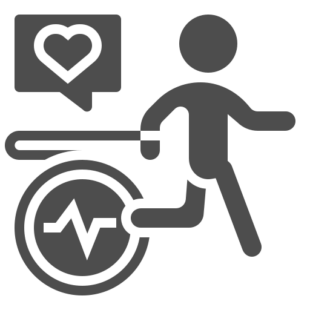
Introduction
Picture this: a patient feels nervous about a new diagnosis. They’re in an unfamiliar setting, possibly in pain, and filled with uncertainty. Then, a kind nursing assistant comes along—someone who offers a warm smile asks how they’re feeling, and listens to their worries. Suddenly, things feel a bit more manageable. Nursing Assistants play a vital role in providing comfort and support to patients, working closely with nurses, doctors, and families to ensure patients receive the best possible care.
Working as a nursing assistant is not only about learning the technical tasks but also about building the qualities that help bring compassion and efficiency into every moment of care. From effective communication to a patient-focused mindset, these qualities are as important as the tasks nursing assistants carry out daily. So, what makes an exceptional nursing assistant? Let’s look at the top qualities that bring success and fulfilment in this field.
Why Are Personal Qualities Essential for Nursing Assistants?
As a nursing assistant, your daily tasks often involve working closely with patients who need help with personal care, mobility, and emotional support. The role also includes assisting nurses, such as an Adult Nurse or Mental Health Nurse, with vital tasks that ensure patient safety and comfort. The quality of your work and your approach can make a significant difference to the patient’s experience and to the healthcare team’s morale.
When you bring the right personal qualities to the role, you create a better atmosphere for everyone, from patients to colleagues. Qualities like patience, compassion, and adaptability help in managing challenging situations, and ensuring patients feel cared for and safe. These traits contribute to smoother, more enjoyable days in healthcare.
Start A Rewarding Career As A Nursing Assistant?
Key Qualities of an Effective Nursing Assistant
Let’s look at some of the most valuable qualities that can help a nursing assistant succeed in their daily work.
1. Compassion and Empathy
Compassion is one of the most important qualities in healthcare. Being compassionate means understanding patients’ situations and offering support in a kind and caring way. Empathy goes hand-in-hand with compassion, allowing you to connect with patients on a personal level, which is especially helpful for patients facing difficult times.
When you’re compassionate, patients feel valued and cared for, which is often as important as the medical treatment they’re receiving. In mental health nursing, for instance, empathy is essential because patients may feel vulnerable or anxious. Showing genuine care helps build trust and makes a big difference in a patient’s overall well-being.
2. Strong Communication Skills
Good communication is vital for a nursing assistant. You’ll be speaking with patients, family members, and other healthcare staff, such as Adult Nurses or Mental Health Nurses, every day. Clear and respectful communication makes it easier to understand patients’ needs and explain procedures, helping patients feel at ease.
Communication isn’t just about talking; it also involves listening carefully. Patients may have concerns or fears they want to express, and by actively listening, you can provide better care and support. In nursing assistant roles, good communication also means reporting any changes in a patient’s condition to the nursing team, as these updates are critical for providing timely care.
3. Patience and Emotional Resilience
Working in healthcare requires a high level of patience, especially when dealing with patients who may be distressed, confused, or unable to communicate easily. As a nursing assistant, patience allows you to handle difficult situations calmly, making sure the patient’s needs come first.
Emotional resilience is another key quality. The work can sometimes be emotionally challenging, particularly when caring for patients in vulnerable situations. Being resilient helps you stay focused and positive, even on tough days, so you can continue to provide excellent care without feeling overwhelmed. Many nursing assistants find that taking regular breaks, talking with colleagues, and practising self-care helps maintain their emotional strength.
4. Attention to Detail
A keen eye for detail can make a big difference in healthcare. From observing patients’ physical signs to noting changes in behaviour, paying close attention can help prevent issues before they become serious. For instance, spotting early signs of discomfort or infection allows nurses to take quick action, ensuring patients remain safe and comfortable.
In a busy care environment, it can be easy to overlook small details, but these often have significant consequences for patients. Nursing assistants who stay alert and mindful of their surroundings are better able to support the well-being of everyone in their care.

5. Physical and Emotional Stamina
Being a nursing assistant can be physically demanding. The role often involves assisting patients with mobility, helping them stand, walk, or transfer between beds. Physical stamina is essential, as you may need to move or support patients multiple times during a shift.
On the emotional side, nursing assistants often encounter challenging situations that can be mentally taxing. Supporting patients through tough moments requires emotional strength, and staying calm helps keep patients comfortable. Many nursing assistants practise simple self-care techniques, like stretching or deep breathing, during their breaks to maintain both physical and emotional stamina.
6. Flexibility and Adaptability
In healthcare, no two days are the same. Nursing assistants need to be flexible to handle unexpected changes, such as shift changes, emergencies, or different patient needs. This flexibility allows you to adapt and respond effectively, even if your planned routine is interrupted.
Adaptability is especially helpful when working in different areas of healthcare, such as adult nursing or mental health nursing, where the requirements can vary significantly. Being adaptable also helps create a more positive working environment, as colleagues and patients can rely on you to stay calm and focused, regardless of the situation.
7. Dependability and Strong Work Ethic
Dependability is a crucial quality for anyone working in healthcare. Patients and healthcare teams depend on nursing assistants to show up on time, complete tasks thoroughly, and maintain a positive attitude. Being reliable means you are someone that patients and colleagues can trust, creating a sense of security and stability.
A strong work ethic goes hand in hand with dependability. Nursing assistants who approach their role with commitment are often recognised for their dedication and willingness to go the extra mile. This approach not only benefits the patients but also makes the healthcare setting a more supportive and effective place to work.
8. Teamwork and Collaboration Skills
Healthcare is a team effort, with many roles working together to provide the best care possible. Nursing assistants often work alongside nurses, doctors, and other healthcare staff. Being able to work well within a team means understanding your role, communicating openly, and respecting others’ input.
In areas like mental health nursing, where patient needs are complex, teamwork is essential. By working well with others, nursing assistants ensure patients receive continuous and comprehensive care. Being approachable and willing to collaborate also helps build positive relationships within the team, making for a smoother and more enjoyable work environment.
How Developing These Qualities Leads to Success as a Nursing Assistant

Developing these qualities not only helps nursing assistants provide better care but also supports career growth and personal satisfaction. A compassionate, attentive, and adaptable nursing assistant can improve patient experiences and contribute to a supportive workplace. When patients feel cared for and understood, they respond more positively to treatment, making the healthcare environment better for everyone.
Additionally, these qualities often make a nursing assistant more confident and capable, which can lead to other opportunities within healthcare, including mental health nurse jobs or other specialised areas. Building these qualities also fosters a sense of achievement and pride in one’s work, making each day in the role rewarding.
Tips for Building and Strengthening Key Nursing Assistant Qualities
Strengthening these qualities may take time and practice, but there are simple ways to start developing each one:
- Communication and Empathy: Practise active listening and observe how others express empathy. Small gestures, like asking questions to clarify a patient’s needs, go a long way.
- Patience and Resilience: Develop patience by staying present and not rushing tasks. For resilience, make self-care a priority, whether through hobbies, exercise, or mindfulness.
- Flexibility and Adaptability: Learn to accept changes as part of the role. View unexpected events as opportunities to grow and learn rather than disruptions.
- Attention to Detail: Develop routines that ensure important details are checked. For instance, double-check tasks like recording vital signs or completing patient charts.
By focusing on building these qualities, nursing assistants can feel more prepared and confident, making their role in healthcare not only effective but also personally fulfilling.
Conclusion
A good nursing assistant combines compassion, communication, patience, attention to detail, and teamwork, positively impacting both patients and the healthcare team. By developing these qualities, nursing assistants provide a level of care that truly supports the well-being and comfort of those they care for. If you’re considering or already in this role, focusing on these qualities can help create a rewarding healthcare career, offering both personal growth and the satisfaction of making a difference.
- All Courses
Personal Development (1217)
 Employability (339)
Employability (339) Management & Administration (289)
Management & Administration (289)Health & Social Care (265)
 Health and Safety (255)
Health and Safety (255)Business (207)
IT & Software (188)
 Health and Fitness (170)
Health and Fitness (170) Teaching & Education (149)
Teaching & Education (149) Accounting & Finance (107)
Accounting & Finance (107) Mental Health & Counselling (96)
Mental Health & Counselling (96) Science & Technology (85)
Science & Technology (85) Art & Design (83)
Art & Design (83) Sales & Marketing (78)
Sales & Marketing (78) Construction & Engineering (73)
Construction & Engineering (73) Compliance & Law (66)
Compliance & Law (66)Language (64)
Career Bundle (57)
 Photography & Lifestyle (45)
Photography & Lifestyle (45) Animal Care (34)
Animal Care (34) Sports & Fitness (34)
Sports & Fitness (34)Makeup & Beauty (27)
 Diet & Nutrition (27)
Diet & Nutrition (27) Food Safety & Hygine (21)
Food Safety & Hygine (21)First Aid (19)





0 responses on "What Are the Most Effective Qualities for Becoming a Good Nursing Assistant?"